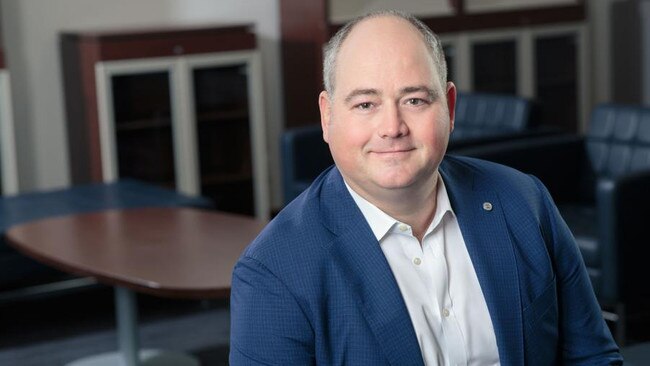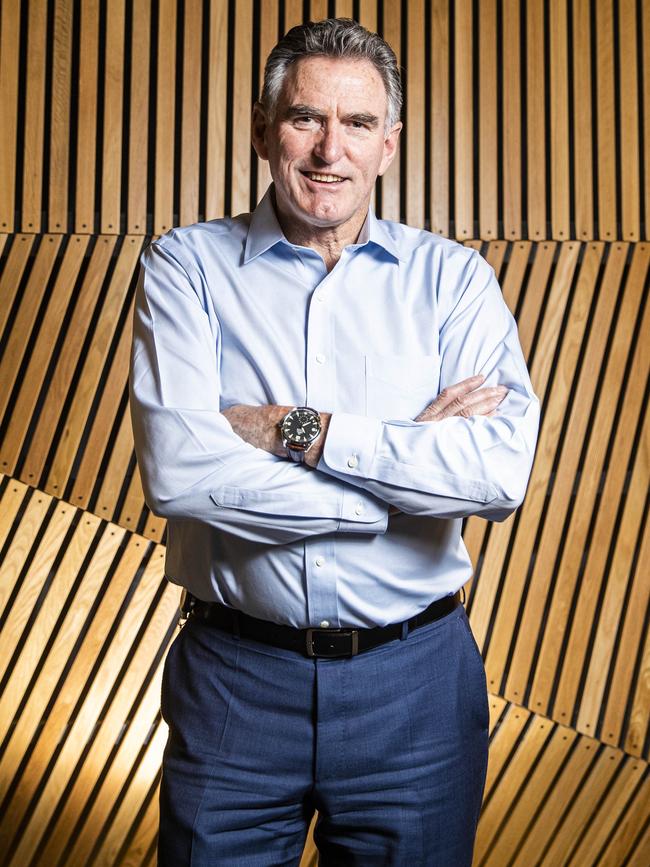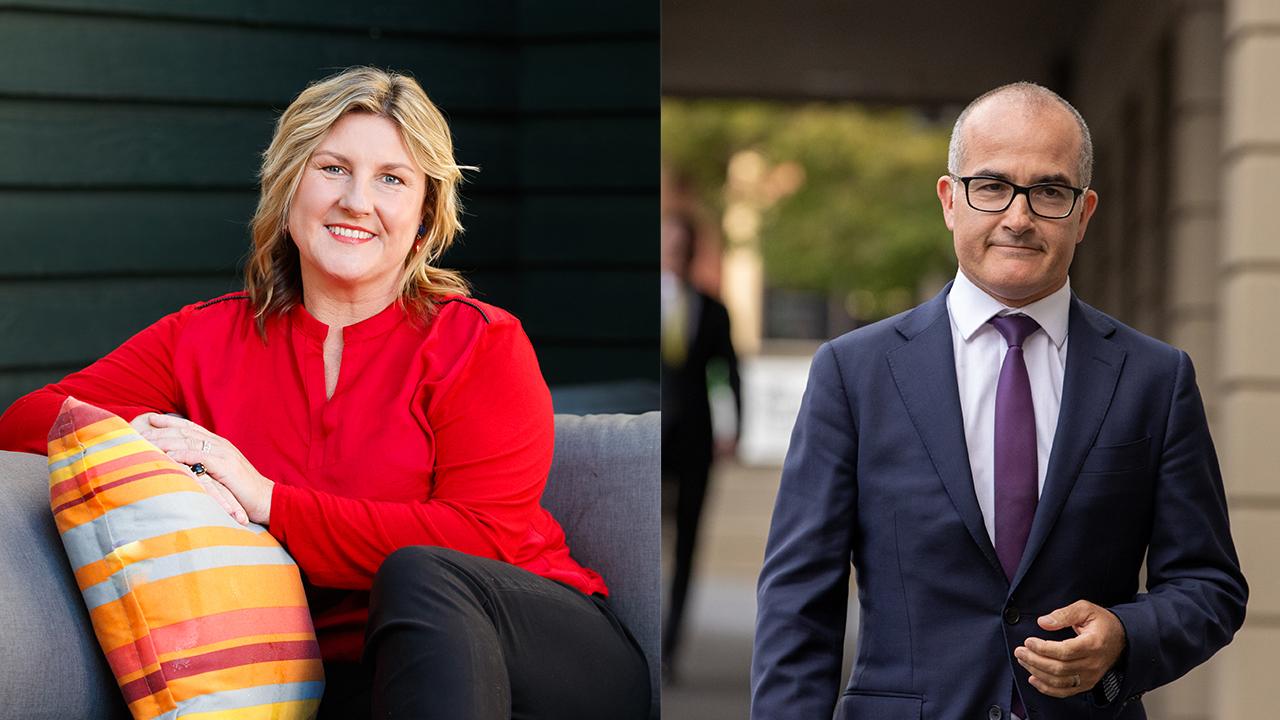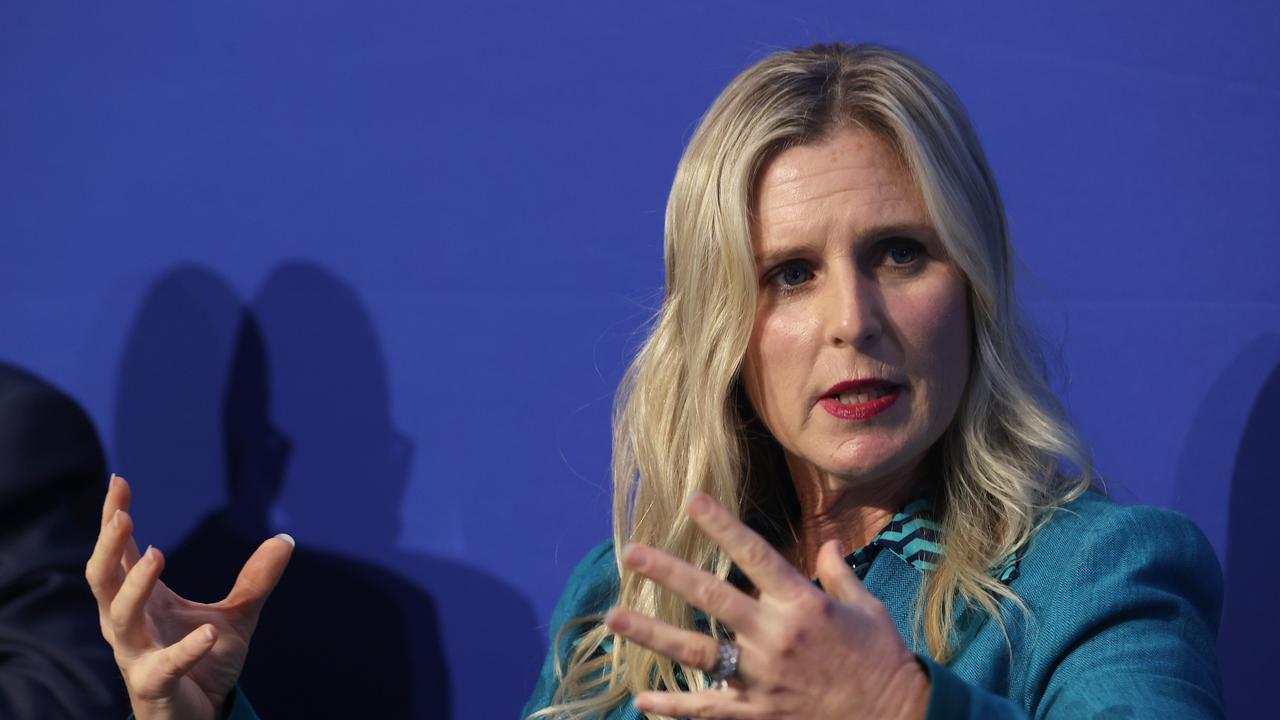Business is ready to borrow, says NAB’s Andrew Irvine

Andrew Irvine admits his timing has been pretty good. In September he was poached by National Australia Bank chief Ross McEwen from the Bank of Montreal in Canada to head up business and private wealth for Australia’s top business bank.
Eight months on, as Canada struggles to contain another COVID wave, small and mid-sized businesses here are back borrowing to invest, and wealthy customers are after advice for where to put their growing savings.
What is more, Tuesday night’s budget is expected to deliver a high-spending government program targeted to jobs and growth.
And in this deeply competitive area of the banking market, Irvine is not standing still.
“We have a plan … that is resonating with my bankers and it’s resonating in the marketplace and it is really all about execution,” Irvine tells The Australian.
Last week’s interim result for NAB delivered cash earnings of $3.3bn, up 35 per cent over the previous year. The business and private bank’s cash earnings of $1.2bn fell 10 per cent partly due to the very low interest rates but also the cost of putting on almost 500 new business bankers.
“We were particularly positive about business that I run, the business and private bank,” Irvine says. “Our March and April numbers were very, very strong. We can go back three to five years and they are historically strong compared to those benchmarks and we also feel that we are winning.”
Winning that is, in market share terms. Despite the public challenge from Commonwealth Bank, NAB’s market share climbed 30 basis points to 26.3 per cent. The bank’s small and mid-sized business (SME) lending growth for the half was up 0.7 per cent compared to a 0.7 per cent fall in business lending across the broader banking market. New business transactions are up 16 per cent and the pipeline for business and consumer lending is up 50 per cent over this time last year, convincing the new division chief he will have a good second half.
On the ground, what Irvine is hearing is that after drought, fires and then COVID, customer mindsets are shifting from uncertainty to confidence.
“Now when I talk to customers, the single biggest issue I hear here is actually labour and access to labour,” he says. “They can’t find enough people to work in the paddocks, to work in the factories, the restaurants or the hotels. That is what they are talking about, versus whether there is demand for their products and services.”
He says it is not yet clear whether this will have any pressure at all on wages.
In Tuesday’s Budget, Irvine is looking for anything that will support confidence of business owners around three areas.
“Bringing forward any tax stimulus or the tax agenda that the Coalition has would be welcomed; and making it easier for companies to hire people and invest. The third one is the need for skilled migration and international students coming back to Australia.”

The temporary full expensing measure introduced in the last budget for businesses with a turnover under $5m has been popular with his customers.
“If I look at my equipment finance business, the demand there has been extraordinary. We are seeing customers buying plant and machinery and all those kinds of things that enable them to be more competitive,” he says.
“As a tool it has had the desired effect by government. It is up to them whether they extend that but it certainly has been an effective policy tool.”
There are clearly sectors still struggling and NAB has lifted provisions on business loans for aviation, tourism, hospitality and entertainment. Interestingly in the latest NAB quarterly business survey on confidence and conditions, the big states of Victoria and New South Wales lag other states which Irvine puts down to the uncertainty from recent lockdowns.
A big part of the recovery story is in regional Australia.
Of the 490 new NAB business bankers, Irvine says 200 will be small business bankers going back into business centres and branches all over the country.
“We believe in having local presence and that makes a difference. And that lands quite well with the strength that we are seeing in regional Australia.”
A McKinsey alumnus, Irvine spent a total of 12 years at Bank of Montreal, most recently running its business banking division. What attracted the Canadian-British dual citizen to Australia was the leadership.
“Frankly the biggest thing was Ross (McEwan) himself. In any job who you work for is one of the most important things and when I looked at what Ross had accomplished here in Australia and also in Scotland with RBS, as far as I was concerned he was one of the great bank CEOs globally.”
It was Irvine’s digital and data analytics work at Bank of Montreal, that McEwen was especially interested in. This would help the Canadian bank speed up transactions for customers and as well as understand how businesses were faring through COVID.
Payment platforms are the latest contested ground for new customers. Over 90 per cent of NAB customer transactions have moved to self-service digital. It means the best need to be frictionless, easy and often feel human.
“Does the bank know me? Does the bank provide solutions that are relevant to me? Those things absolutely do matter,” says Irvine.
At NAB, Irvine is investing more in digital. In Canada, he ran both the payments business and the payments portal.
“We delivered some pretty revolutionary financing solutions there where we could lend up to a million dollars in basically 20 minutes. Those types of capabilities we are also actively pursuing on our agenda here.”
He is equally bullish about his other business of high net worth individuals. Here again, the bank can afford to invest in its own growth.
The bank has put on 50 new private bankers already this year. NAB owns JBWere and a growing digital self-service brokerage as well as its global investment desk.
“As owners build their businesses out, often they create personal wealth and we want to be there for them as they look to transition their businesses for the next generation as well as potentially to diversify their wealth into other investment categories,” he says.






